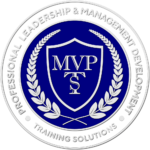As more women assume leadership positions in business, executive coaching has become more crucial. An executive coach works with female leaders one-on-one to improve performance, skills, and leadership effectiveness.
Through executive coaching, women leaders can gain valuable insight into their leadership strengths and weaknesses, develop new strategies for handling tough situations as well as cultivate key leadership competencies.
Women’s Leadership Coaching Services:
Women starting or changing careers or pursuing career advancement can benefit from leadership coaching. leadership coaching provides them with the skills, knowledge, and confidence they need to excel in their chosen fields.
This coaching can help women understand their specific leadership issues, handle workplace politics, improve communication, and develop effective leadership styles.
Benefits of Leadership Coaching for Women:
Coaching allows women leaders to safely explore leadership styles and build new skills. It also assists women in recognizing any self-limiting beliefs or behaviors which might prevent them from reaching their full potential.
Coaching for women leaders also can assist them in forging stronger relationships with their colleagues, team members, and superiors, leading to enhanced collaboration, decision-making, and productivity within their workplace.
Women Are More Likely to Receive Leadership Coaching:
As coaching becomes more common across all industries, research indicates that women are more likely than men to seek coaching and mentoring opportunities.
According to a Harvard Business Review study, female employees were 24% more likely than their male counterparts to have one mentor and 54% more likely to have multiple mentors than their male counterparts.
Gender bias and discrimination in the workplace may explain this tendency. Leadership coaching provides invaluable assistance as women navigate these difficulties and seek to overcome them.
Benefits of Hiring a Coach:
No matter the gender, having a coach can bring many benefits. Coaches provide objective feedback on your performance, help identify and overcome obstacles to achieving your goals, hold you accountable to reach those goals, as well as provide invaluable insight into your strengths and weaknesses as well as assist with developing new skills and competencies.
Coaching can also improve self-awareness and emotional intelligence, which are essential for meaningful relationships and effective leadership.
How to Hire a Coach:
If you’re interested in hiring a coach, the first step should be identifying what kind of coaching you require.
For instance, if it is executive coaching that you require then find someone specializing in working with high-level executives while for leadership coaching find someone experienced in working with leaders from your industry or group.
After you have established your needs, you can begin searching for coaches either locally or online. Look for coaches with experience working with clients similar to yourself and who have proven successful at helping their clients meet their goals.
Once you find a coach you are interested in working with, arrange an initial consultation to discuss your needs and goals. This encounter allows you to meet them, ask any relevant questions, and determine if they’re right for you.
How to Coach Yourself:
Self-coaching involves using various tools and techniques to boost performance and leadership capabilities in yourself.
Self-coaching requires setting goals. Determine which areas need improvement and create a plan to reach them. Read leadership books or articles, attend training workshops, obtain feedback from coworkers and superiors, or attend leadership training seminars.
Self-coaching also boosts self-awareness. Set realistic goals for progress after honestly assessing your strengths and flaws. Personality evaluations and 360-degree feedback surveys may reveal your leadership style and performance.
- Marshall Goldsmith: Marshall Goldsmith is an esteemed executive coach and author, having collaborated with numerous Fortune 500 CEOs and other high-level executives. Alongside coaching services, she also offers training programs and workshops focusing on leadership development.
- Brenda Bence: Brenda Bence is an executive coach and author who specializes in helping female leaders develop their personal branding and communication abilities. She has experience advising clients from diverse industries ranging from technology, finance, and healthcare.
- Susan Colantuono: Susan Colantuono is an international authority on women’s leadership development and founder of Leading Women, a consulting firm dedicated to cultivating this area. She has presented keynote addresses and workshops worldwide and has been featured in publications such as Forbes and Harvard Business Review.
- Sally Helgesen: Sally Helgesen is an author and speaker who specializes in helping women advance into leadership positions. She has published multiple books on this subject – “The Female
- Advantage: Women’s Ways of Leadership,” among them – as well as been named by Global Gurus one of their top 30 leadership thinkers.
- Elizabeth Ghaffari: Elizabeth Ghaffari is an executive coach and author who specializes in helping female leaders navigate complex organizational dynamics. Her clients come from industries as varied as technology, finance, and healthcare and she has been featured in Forbes, The New York Times, and other leading publications.
The Compelling Statistics Behind Coaching Women Leaders:
Studies conducted by the International Coach Federation (ICF) reveal that 70% of coaching clients reported improved work performance while 80% experienced increased self-confidence as a result.
Human Capital Institute research revealed that companies investing in coaching for female executives realize a return on investment (ROI) of over seven times the initial costs associated with coaching.
Harvard Business Review conducted research that revealed women occupy 39% of managerial roles worldwide, but only 24% of senior management roles. Coaching can assist women in breaking through this “glass ceiling” and reaching higher-level positions.
According to a survey by the ICF, women are more likely than men to seek coaching and mentoring opportunities; 65-72% of female respondents stated having received coaching at some point during their career versus only 58% for men.
Catalyst conducted research that demonstrated companies with greater female representation on their boards achieved significantly superior financial results than those with less gender representation on their boards.
McKinsey & Company research shows that companies with more gender-diverse leadership teams are 21% more likely to experience above-average profitability.
These statistics demonstrate the advantages of coaching women leaders and promoting gender diversity and inclusion within organizations. By investing in coaching and mentoring programs for female leaders, organizations can enhance performance, build stronger teams, and achieve greater success.
Make sure to hold yourself accountable for reaching your goals by setting regular check-in with yourself to assess progress and adjust accordingly – this way, achieving them will become much simpler!
Coaching women in leadership can help them navigate modern workplace problems. Working with an executive coach or self-coaching can help women develop leadership skills and competencies, build stronger relationships with colleagues and superiors, increase self-awareness and emotional intelligence, and invest in themselves. Leaders who invest in themselves may find better job satisfaction.
Coaching Women Entrepreneurs and Small Business Owners:
While executive coaching and leadership coaching are often associated with corporate environments. Coaching is equally valuable for women entrepreneurs and small business owners. Whether you’re starting your own business or managing a small enterprise, coaching can provide invaluable support and guidance.
Coaching for women entrepreneurs and small business owners focuses on enhancing leadership skills, strategic thinking, and business acumen. It assists women in building a business plan, obtaining funding, managing growth, and making important decisions.
Working with a coach specialized in entrepreneurship and small business ownership can offer targeted guidance tailored to your specific industry or field. These coaches have experience in areas such as marketing, sales, operations, finance, and human resources. They can provide insights and strategies to help you build a successful business, overcome obstacles, and achieve your goals.
Coaching also fosters personal development and self-awareness, which are crucial for entrepreneurial success. It helps women entrepreneurs identify their strengths and weaknesses, capitalize on their skills, and address any self-limiting beliefs or behaviors that may hinder their progress.
Additionally, coaching supports the development of effective communication and leadership styles, enabling entrepreneurs to build strong relationships with employees, clients, and stakeholders.
In today’s digital age, coaching sessions can take place remotely, offering flexibility and convenience. Virtual coaching sessions via video conferencing platforms allow women entrepreneurs to access coaching services from anywhere. This eliminates geographical barriers and accommodates busy schedules.
Entrepreneurship and small business ownership require determination, resilience, and continuous learning. Coaching provides a supportive partnership that empowers women entrepreneurs to navigate the complexities of running a business, make informed decisions, and achieve long-term success.
Frequently Asked Questions:
What are the differences between executive coaching and leadership coaching?
Executive coaching aims at aiding high-level executives to improve their performance and effectiveness as leaders; on the other hand, leadership coaching may be broadly focused and suitable for women at any level of an organization.
How can I locate a coach specializing in women in leadership positions?
Search for executive coaches with experience working with female leaders in your industry or field. You can get referrals from colleagues or mentors or search online directories of executive coaches.
How much does coaching cost?
The cost of coaching services varies considerably based on a coach’s experience, expertise, and length and frequency of sessions. Some charge by the hour while others offer packages that may cover multiple sessions.
How long do coaching sessions typically last?
The duration of coaching varies based on an individual’s goals and needs; some coaching relationships may last only for several sessions while others could extend over months or years.
Can coaching truly make an impactful contribution to my career?
Yes! Coaching can help you develop new skills and competencies, and build stronger relationships with colleagues and superiors. Moreover, it helps gain greater self-awareness and emotional intelligence and ultimately achieve increased career success and advancement.
Are there any advantages to working remotely with my coach instead of meeting in person?
Coaching sessions may take place either face-to-face or remotely, depending on your preferences and the availability of a coach. Nowadays, many coaches now provide virtual coaching via video conferencing platforms like Zoom or Skype.
Coaching: Exclusively for Women? Can coaching serve entrepreneurs and small business owners as well?
Coaching can provide women in various professional environments, including corporate environments, entrepreneurship, and small business ownership. Finding an experienced coach in your particular industry or field is key.





